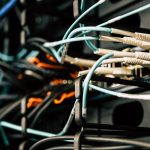Energy bills can be a significant source of financial stress for many households. The cost of electricity, gas, and other energy sources can quickly add up, leaving homeowners and renters alike searching for ways to lower their monthly expenses. Understanding the factors that drive high energy bills is the first step toward finding practical solutions to reduce them. In this blog post, we will explore the various reasons behind soaring energy costs and provide valuable tips on how to address them.
Inefficient Appliances
One of the primary culprits behind high energy bills is the use of outdated and inefficient appliances. Older refrigerators, washing machines, dryers, and other household devices consume more energy compared to their modern, energy-efficient counterparts.
Over time, the inefficiency of these appliances can substantially inflate your energy bills. Consider upgrading to Energy Star-rated appliances, which are designed to minimize energy consumption while still delivering top-notch performance.
Poor Insulation
Inadequate insulation in your home can lead to substantial energy losses. During the winter, poorly insulated homes allow warm air to escape, requiring your heating system to work overtime to maintain a comfortable indoor temperature.
Conversely, in the summer, subpar insulation permits hot outdoor air to infiltrate your living space, causing your air conditioner to run relentlessly. Proper insulation is an investment that pays for itself in energy savings over time.
Air Leaks
In conjunction with poor insulation, air leaks can lead to energy wastage. Common sources of air leaks include drafty windows and doors, gaps in walls, and improperly sealed ducts.
These leaks allow conditioned air to seep out and outdoor air to creep in, which forces your HVAC system to work harder to maintain the desired temperature. Sealing these gaps with weatherstripping, caulk, or insulation can help you prevent energy losses and reduce your energy bills.
High Energy Usage Habits
Wasteful energy usage habits can contribute significantly to high energy bills. Leaving lights on in unoccupied rooms, running appliances constantly, and setting the thermostat to extreme temperatures can all have a noticeable impact on your monthly energy costs.
By adopting energy-conscious behaviors such as turning off lights when not in use and adjusting your thermostat sensibly, you can cut down on your energy consumption and lower your bills.
Old HVAC Systems
Outdated heating, ventilation, and air conditioning (HVAC) systems tend to be less energy-efficient than their newer counterparts, making it difficult to maintain a comfortable temperature without breaking the bank. This is where proper maintenance and upgrades come into play.
By cleaning filters and scheduling regular tune-ups, you can ensure your HVAC system is operating at its peak efficiency. For those with particularly outdated systems, considering options like furnace replacement in Sandy might be the solution necessary for keeping your home comfortable and energy bills affordable.
Inefficient Lighting
Traditional incandescent light bulbs are notorious energy guzzlers compared to modern LED or CFL bulbs. If your home is still primarily lit with incandescent, consider making the switch to energy-efficient lighting options. LEDs are not only more energy-efficient but also have a longer lifespan, reducing the frequency of bulb replacements and further lowering your energy costs.
Water Heater Settings
Your water heater can account for a significant portion of your energy bills, especially if it is set at unnecessarily high temperatures. Lowering the thermostat on your water heater to a comfortable yet safe setting, typically around 120°F (49°C), can help reduce energy consumption. Additionally, insulating your water heater tank and hot water pipes can further enhance energy efficiency.
Unregulated Use of Electronics
Many electronic devices continue to draw power even when they are in standby mode or turned off. This phenomenon, known as “phantom” or “vampire” energy usage, can contribute to high energy bills over time. To combat this issue, use power strips to easily disconnect multiple devices at once and unplug chargers and electronics when they are not in use.
Large and Inefficient Homes
The size and energy efficiency of your home plays a significant role in your energy bills. Larger homes typically require more energy to heat and cool, especially if they lack proper insulation and energy-efficient systems.
If you have a spacious residence, consider investing in energy-saving upgrades, such as improved insulation, energy-efficient windows, and a zoned HVAC system, to reduce energy consumption and lower your bills.
Weather Conditions
Extreme weather conditions can have a substantial impact on your energy bills. Very hot summers and extremely cold winters can cause your HVAC system to work harder to maintain a comfortable indoor temperature.
While you can’t control the weather, you can take steps to mitigate its impact on your energy bills. Use energy-efficient windows to block excess heat or cold, add insulation, and consider installing a programmable thermostat to optimize your heating and cooling settings.
Conclusion
High energy bills can be a significant financial burden, but by understanding the factors that drive them, you can take proactive steps to reduce your energy consumption and lower your monthly expenses.
Whether it’s upgrading to energy-efficient appliances, improving insulation and sealing air leaks, adopting energy-conscious habits, or investing in modern HVAC systems, there are numerous strategies you can employ to make your home more energy-efficient. By taking action to address the root causes of high energy bills, you can enjoy a more comfortable living space and keep more money in your pocket.


